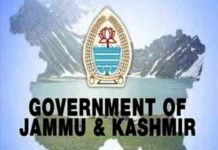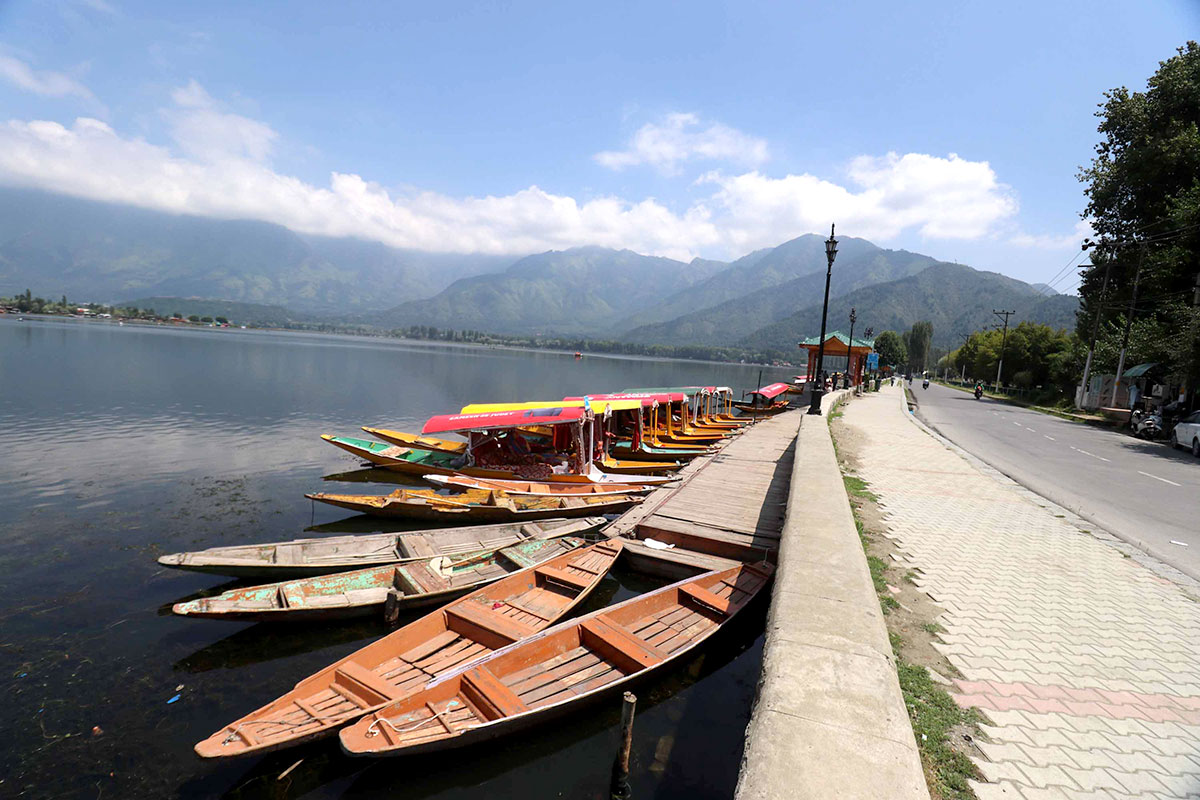Christopher Snedden
 Surprisingly, the leader of the Pakistan Army, General Raheel Sharif, once again recently talked about ‘Kashmir’ being the ‘jugular vein’ for Pakistan. Given that the ‘k’ in the acrostic ‘Pakistan’ stands for ‘Kashmir’—i.e., the former princely state of Jammu and Kashmir (J&K) popularly called ‘Kashmir’ after its most famous part, the Kashmir Valley—General Sharif’s statement appeared significant. But was it?
Surprisingly, the leader of the Pakistan Army, General Raheel Sharif, once again recently talked about ‘Kashmir’ being the ‘jugular vein’ for Pakistan. Given that the ‘k’ in the acrostic ‘Pakistan’ stands for ‘Kashmir’—i.e., the former princely state of Jammu and Kashmir (J&K) popularly called ‘Kashmir’ after its most famous part, the Kashmir Valley—General Sharif’s statement appeared significant. But was it?
The jugular vein is important, even vital, to a human being’s wellbeing. It is a highly significant vessel that transfers a human’s blood between two major human organs, the brain and the heart. Sever this vein and a human being will die, or can be killed, exceedingly quickly. One way to sever the jugular vein is by cutting someone’s throat. A victim dies quickly after such a brutal action, with significant medical attention needed almost immediately in order to save them. The importance of the jugular vein therefore suggests a number of things re J&K and Pakistan. First, that they share the same, indeed identical, blood. Second, that they are part of the same body and are joined or unified by this important blood vessel. Third, that should this ‘vein’ ever be severed, both the ‘upper’ region of J&K and the ‘downstream’ or geographically lower nation of Pakistan will quickly die.
Muhammad Ali Jinnah possibly first publicised the seemingly biologically-significant relationship between J&K and Pakistan. He apparently first used the ‘jugular vein’ term to describe the inalienable link between princely J&K and the new nation of Pakistan. Allegedly, Jinnah said that “From the political and military standpoints, Kashmir is the jugular vein of Pakistan. No independent country and nation can tolerate the handing over of its jugular vein to the enemy.” I say ‘allegedly’ as the founder of the Jammu Kashmir Liberation Front, Amunallah Khan, contests this statement, claiming that Jinnah favoured independence for J&K. Khan is partly right: the All-J&K Muslim Conference, which was heavily influenced by, and ostensibly subordinate to, Jinnah’s All-India Muslim League, only came out in favour of J&K joining Pakistan as late as 22 July 1947, less than four weeks before the British left India. Beforehand, the (seemingly biologically-ignorant) Muslim Conference had favoured an independent J&K. Afterwards, in the minds of Muslim Conference and Muslim League members, J&K and Pakistan became vitally and inextricably linked. This transplanted the J&K-Pakistan relationship.
Thus, from late July 1947, pro-Pakistan J&K-ites and Pakistanis considered J&K to be of vital importance to Pakistan. Some reasonable reasons existed for this belief. First, J&K was a 77 per cent Muslim-majority princely state whose people Pakistani politicians (falsely) believed would naturally favour J&K joining Muslim Pakistan—not secular India, as finally happened, chiefly because the accession decision resided with the ruler of J&K, Maharaja Sir Hari Singh, not J&K-ites. Second, three of the major rivers that flow into Pakistan and provide it with vital irrigation water for agriculture and human survival flow through J&K: the Chenab, Jhelum and Indus. Third, on 17 August 1947, when the India-Pakistan border was officially announced, J&K obtained a long border with Pakistan and a short one with India, suggesting that J&K would unite with Pakistan. This situation changed dramatically when Hari Singh acceded to India on 26 October 1947, after which J&K in its entirety legally became part of the Indian Union. Actually, fighting that had started as early as August 1947, and which increased dramatically thereafter, had already divided the princely state into pro-Pakistan and pro-India areas. A few J&K-ites favoured independence for J&K. Post-accession, Indian J&K actually comprised Jammu, Kashmir and Ladakh; Pakistan-Administered J&K consisted of Azad (Free) Kashmir and the Northern Areas (now called Gilgit-Baltistan). Since 1947—and despite J&K’s supposed vital importance to Pakistan—this nation has survived reasonably well politically, economically and socially without possessing all of J&K, or its most prized part, the Kashmir Valley.
How could this be? One major reason is because the 1960 Indus Waters Treaty between India and Pakistan has successfully regulated, and minimised, water matters between them. Basically, this treaty has taken the heat out of the water issue (to mix a metaphor), with upstream India consistently providing downstream Pakistan with agreed amounts of water annually, for over 40 years. This has largely placated Pakistani fears that India may turn the water off, or on, depending on the issue and time of year. A second reason is that, for both Pakistan and India, the area of desire, and contestation, has always been the Kashmir Valley—even though most Kashmiris probably don’t want to join either nation. Pakistanis have never really been interested in obtaining the Indian-controlled areas of Hindu-dominant Jammu and Buddhist-Shia-populated Ladakh. Thus, if ‘Kashmir’—by which Islamabad invariably means the Kashmir Valley—is the jugular vein, then these ‘lesser’ or non-Muslim-majority areas are expendable limbs the loss of which won’t kill the body.
This suggests that ‘Kashmir’ is Pakistan’s ‘jugular vein’ almost exclusively in Pakistani military minds. They demand such a scenario. Without the bitter, expensive India-Pakistan contest over Kashmir, Pakistan would not need to maintain an expensive, aggressive, politically-interventionist, essentially uncontrollable standing army of 550,000 soldiers and 500,000 reserves. Pakistan would still need an army, but this force would be smaller—and less influential. Therefore, General Sharif was using the ‘jugular’ term to remind three ‘constituents’ of the Pakistan Army’s importance, intentions/desires, and/or ‘spoiling’ power: Pakistani politicians, who need to remember their (inferior) place; Pakistani soldiers, who need to ensure their (superior) place; and India, which needs to understand that the Pakistan Army still desires Kashmir. In reality (and mauling some English), for the Pakistan Army, Kashmir is the ‘pugular’ vein (as in pugilism or fighting), ‘mugular’ vein (as in treating a person—in this case, the average Pakistani—as a mug, or idiot) or ‘tugular’ vein (as in a tug-o-war). Kashmir is not, and has never been, of vital life-or-death significance for Pakistan. The proof is that this region has been effectively and successfully separated from Pakistan since October 1947.
(Dr Christopher Snedden is a free-thinking Australian politico-strategic analyst, author, academic, and media analyst and commentator who isan old Kashmir expert. His book Kashmir: The Unwritten History, was published by Harper Collins India. Chris uses his skills and background to inform people about the diverse South Asian region and to untangle some of its curious complexities)














